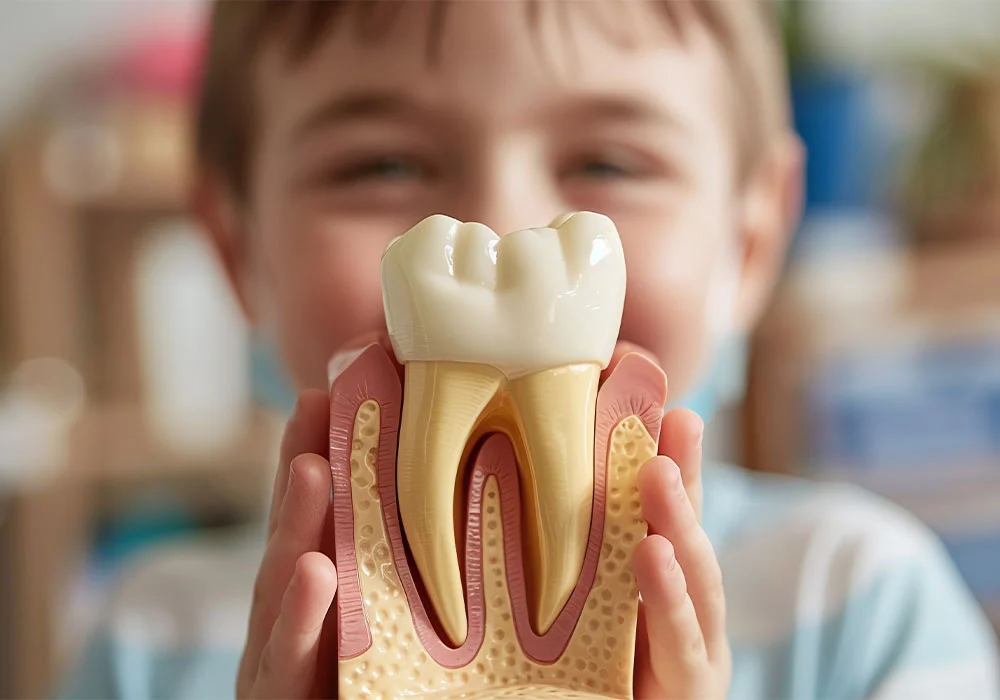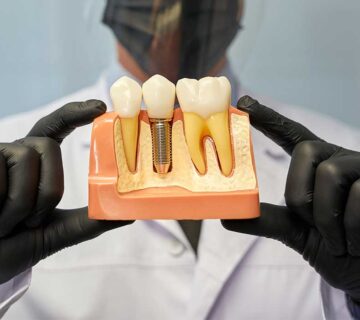Root canal treatment can be applied at any age, but which age groups it is most suitable for depends on the condition of the tooth, treatment needs and the developmental stages of the tooth. We can examine the feasibility of root canal treatment for children, teenagers and adults from different perspectives:
1. Root Canal Treatment for Children (Baby Teeth)
- Root canal treatment can be performed on primary teeth, but this is generally only preferred when the tooth needs to be protected due to deep decay, trauma or infection. Since the roots of primary teeth dissolve over time, root canal treatment usually provides a temporary solution.
- Primary tooth root canal treatment is performed to relieve the child’s pain, prevent the tooth from becoming infected, and prevent early loss of the tooth. However, since milk teeth will eventually fall out, the treatment does not affect the permanent tooth and does not protect the tooth for a long time. Milk teeth that have undergone root canal treatment can remain healthy in the mouth until permanent teeth arrive.
Age Range: Root canal treatment can be performed between the ages of 3-12, but this is usually only applied to primary teeth. With the development of permanent teeth, treatment needs also change.
2. Root Canal Treatment for Teens (Permanent Teeth)
Root canal treatment can be applied to young people, especially during the development of permanent teeth. Since this age group covers a period in which the development of teeth is not completed, treatment can be done differently:
- Permanent teeth with incomplete tooth development: Root canal treatment can be performed in young people, but if the roots of the teeth are not yet fully developed, the treatment process may be different. In this case, special techniques can be applied to protect the pulp (nerves and vessels) at the root ends of the tooth.
- Pain and infection treatment: Just like in adults, young people may require root canal treatment when there is pain or infection inside the tooth.
Age Range: 12-18 years of age is a suitable period for the treatment of permanent teeth. Root canal treatment performed at a young age generally has long-term success rates.
3. Root Canal Treatment for Adults
Root canal treatment in adults may be performed due to tooth decay, trauma, canal infections or more serious dental problems. Root canal treatment is performed by cleaning the infected tissues in the root canal of the tooth and replacing them with healthy filling material.
- Since tooth development is completed in adults, the lifespan of teeth with root canal treatment is generally longer. After the treatment, the tooth can be kept intact in the mouth.
- After root canal treatment, the tooth may need to be strengthened with crowns or fillings. Root canal treatment for adults generally produces successful and long-lasting results.
Age Range: 18 years and above is the age when root canal treatment is applied quite commonly and effectively. Since the development of the tooth is complete, the long-term success rate after treatment is high.
The Relationship Between Root Canal Treatment and Age
- Children: Root canal treatment is usually performed on baby teeth. Since the roots of these teeth will dissolve over time, treatment offers a temporary solution and a long-term solution is usually not expected.
- Teenagers and Adults: Since permanent teeth are fully developed, root canal treatment can be performed and the results are longer lasting. During treatment, the structure of the tooth becomes stronger.
Success Rate of Root Canal Treatment
The success rate of root canal treatment may vary depending on factors such as the age of the tooth, its level of development, treatment process and post-treatment care. However, the success rate of root canal treatment at young ages is generally high because the roots of the teeth are still healthy and the tooth structure is strong.
Root canal treatment can be performed in all age groups. However, while it is usually applied to milk teeth in children, it is applied to permanent teeth in teenagers and adults. While root canal treatment in children’s milk teeth offers a temporary solution to preserve the health of the tooth, root canal treatment in permanent teeth usually provides longer-term and permanent results.
If you or your child need root canal treatment, you can create the most appropriate treatment plan by consulting with a dentist.



















